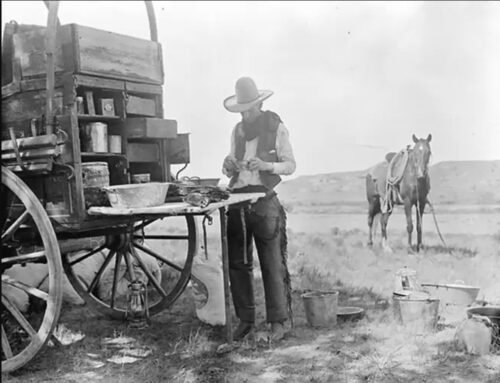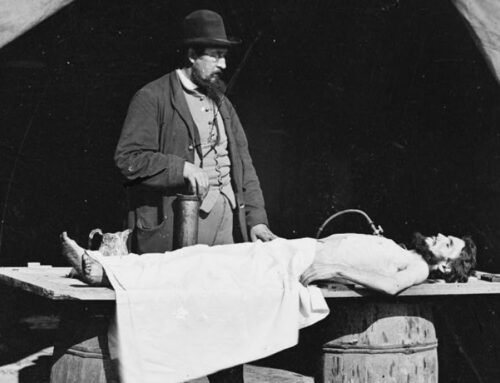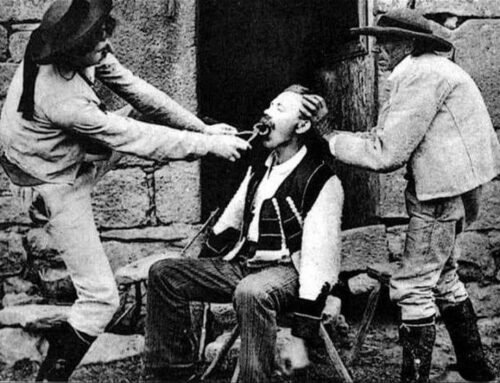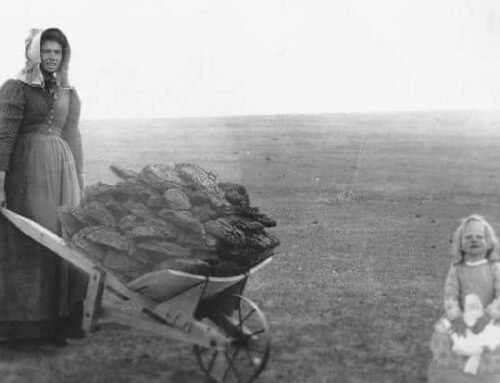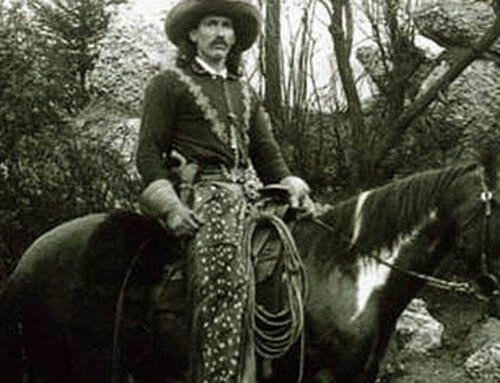‘Hanging Judge’ Roy Bean
By western author Nick Brumby
 “I find this corpse guilty of carrying a concealed weapon and I fine it $40.”
“I find this corpse guilty of carrying a concealed weapon and I fine it $40.”
–‘Judge’ Roy Bean
He called himself “The Only Law West of the Pecos”, had a reputation as a ‘hanging judge’ but knew nothing about the law, and held trials in the main bar of his own saloon. He survived a duel, his own hanging, and killed at least one man.
Yet ‘Judge’ Roy Bean, called ‘The Most Eccentric And Unqualified Judge In History’. wasn’t even a judge — but only a Justice of the Peace.
It doesn’t get any more Wild West than that.
Phantly Roy Bean Jr lived a life seemingly straight from a dime store pulp novel. He was born sometime in the 1820s in Kentucky. Bean had a knack of getting himself into, but more importantly, out of trouble. In 1847 he moved to Mexico with his brothers. but was forced to flee the country after he shot and killed a Mexican desperado who had threatened “to kill a gringo”.
He headed to San Diego, where he opened what was described as a combination ‘saloon, store, gambling hall, horse racing track, cockfighting ring, bookie shop, brothel and vaudeville house’ with another brother.
 A handsome man, Bean was not shy in enjoying the company of a number of local women. After on such tryst, an aggrieved Scotsman challenged him to a horseback duel with pistols. The Scotsman was injured and both men subsequently arrested and charged with assault with intent to murder.
A handsome man, Bean was not shy in enjoying the company of a number of local women. After on such tryst, an aggrieved Scotsman challenged him to a horseback duel with pistols. The Scotsman was injured and both men subsequently arrested and charged with assault with intent to murder.
However, while in jail, Bean reportedly received many gifts of flowers, food, wine and cigars from admiring women across San Diego. Rumour has it that at least one gift contained knives hidden in tamales. Using these implements he dug his way through his cell wall and escaped to freedom.
In 1854 Bean headed north to Los Angeles. Once again he got into trouble over a woman. This time he courted a young woman who was subsequently kidnapped and forced to marry a Mexican officer. Bean challenged the groom to a duel and killed him. Six of the dead man’s friends put him on a horse and tied a noose around his neck, leaving him to hang when the horse moved.
However, the bride, who had been hiding behind a tree, cut the rope, freeing him and saving his life. After all of this Bean walked away from the incident, as well as the woman!
 He moved to new pastures in Texas. During the Civil War he ran the naval blockade by hauling cotton from San Antonio to British ships off the coast and returning with needed supplies. Bean later worked as a butcher, rustling unbranded cattle from other area ranchers for his business.
He moved to new pastures in Texas. During the Civil War he ran the naval blockade by hauling cotton from San Antonio to British ships off the coast and returning with needed supplies. Bean later worked as a butcher, rustling unbranded cattle from other area ranchers for his business.
While in San Antonio, he also made a good living selling milk. True to form he boosted profits by adding creek water to his milk in order to have more to sell. When his buyers complained about finding minnows in their milk, Bean acted surprised and apparently replied “By Gobs, I’ll have to stop them cows from drinking out of the creek.”
In 1882 he headed west to profit off the expansion of the railroad out to El Paso. Soon he had established a small saloon near the Pecos River in a tent city he named Vinegaroon, populated largely by 8,000 railroad workers. With the nearest court 120 miles away at Fort Stockton, there were few means to stop illegal activity.
A Texas Ranger requested that a local law jurisdiction be set up in Vinegaroon, and despite his shady history Bean was considered the closest thing to a respectable citizen in the area. Despite having no previous legal experience Bean was appointed Justice of the Peace of what was then Pecos County and began to mete out his quirky brand of justice. Texas must have really needed lawmen in Pecos County.
Bean started referring to himself as ‘Judge’ and put a sign up over his saloon proclaiming that he was the “Law West of the Pecos”. He quickly made a name for himself as an unconventional magistrate.
His court paraphernalia included only one revolver, a pet bear and a single law book, the 1879 edition of the Revised Statutes of Texas. When newer law books showed up he used them as kindling. Bean did not allow hung juries or appeals, while saloon customers, jurors and witnesses alike were expected to buy a drink during every court recess.
One of his first acts as a justice of the peace was to “shoot up the saloon shack of a competitor”. By December 1882, railroad construction had moved farther westward, and Bean followed the railroad workers and moved his courtroom and saloon 70 miles to Strawbridge (now Sanderson). He quickly built new premises on land he did not own and for the next 20 years Bean squatted on land he had no legal right to use.
 Bean’s legal judgements were anything but conventional. All cases were settled by fines. Bean refused to send the state any part of the fines and kept all of the money. In most cases the fines were made for the exact amount the accused person was carrying.
Bean’s legal judgements were anything but conventional. All cases were settled by fines. Bean refused to send the state any part of the fines and kept all of the money. In most cases the fines were made for the exact amount the accused person was carrying.
He once fined a dead man $40 for carrying a concealed weapon, which as luck would have it was exactly how much was in the dead man’s pockets. (He used the money to bury the man and pay the gravedigger but kept the man’s gun for his gavel.)
He threatened to hang one lawyer for using profane language when the attorney referred to his client’s habeas corpus.
In one case, an Irishman named Paddy O’Rourke shot a Chinese laborer. During the trial, a mob of 200 angry Irishmen surrounded the courtroom and saloon, threatening to lynch Bean if O’Rourke was not freed. After looking through his law book, Bean ruled that “homicide was the killing of a human being; however, he could find no law against killing a Chinaman” and subsequently dismissed the case.
During the construction of a nearby railway bridge, a structure collapsed, and ten workers fell. Bean was called to the site to hold an inquest. Riding on a mule to the accident, he pronounced all ten men dead; however, only seven of them had actually been killed. When questioned on this point, he reasoned that the others would soon die and that he did not want to make the trip twice. (PS: the three men survived).
Once when a train passenger tossed a $20 gold piece on his saloon bar for a beer, Bean refused to give any change. When the stranger protested, Bean fined him $19.95 for contempt of court and threatened to double the fine if the stranger said another word.
 He charged $5 for weddings and ended all ceremonies with the phrase “and may God have mercy on your souls” Although only district courts were legally allowed to grant divorces, Bean did so anyway, pocketing $10 for each divorce. He justified his actions by declaring he had married them, and he had a right to rectify his error.
He charged $5 for weddings and ended all ceremonies with the phrase “and may God have mercy on your souls” Although only district courts were legally allowed to grant divorces, Bean did so anyway, pocketing $10 for each divorce. He justified his actions by declaring he had married them, and he had a right to rectify his error.
Once two couples came in the saloon requesting divorces. As they headed for the door, Bean noticed they had swapped partners. He called them back to court, informed them fornication outside the marriage was illegal and he’d have to fine them or perform two more marriages. This time he charged them five dollars each.
But despite his reputation as a “hanging judge,” Bean never actually hanged anyone. He didn’t even send offenders to prison, preferring to have them work their debt to society through community service. He died in San Antonio on March 16, 1903, after a night of heavy drinking
‘Judge Bean’ may not have known the law, or even really been a Judge, but he made it work, and by sheer force of will imposed a measure of law and order in a remote and brutal part of Texas. What a life – it definitely doesn’t get any wilder than that!

About Nick Brumby
I like a good story. And of all stories, I love westerns the most.
As a kid, I spent far too many afternoons re-watching Clint Eastwood spaghetti westerns, picking up ‘Shane’ for just one more read, or saddling up beside Ben Cartwright when ‘Bonanza’ was on TV each afternoon.
I’m a former journalist and I love horses, dogs, and the occasional bourbon whiskey. I live with my wife, daughter and our ever-slumbering hound in a 1800’s-era gold mining town – our house is right on top of the last working gold mine in the area. There may not be much gold left, but there’s history wherever you look.
I hope you enjoy my westerns as much as I enjoyed writing them!
Happy trails,
Nick























